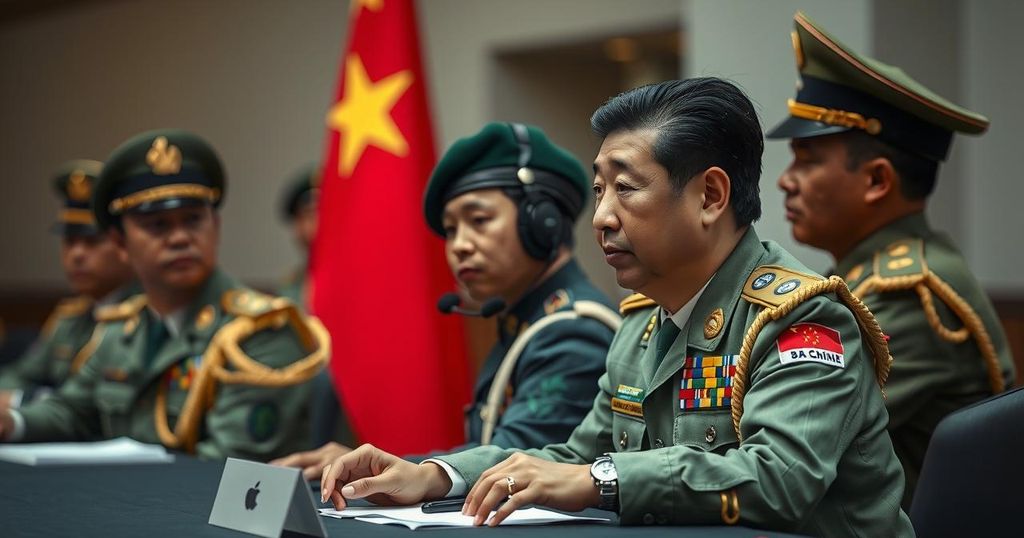Chinese Foreign Minister Wang Yi concluded his Africa tour with a promise of one billion yuan military aid to the continent, emphasizing China’s support for African self-management. His visit to Nigeria showcased China’s expanding strategic partnership amid rising geopolitical tensions, resulting in greater trade ties and ongoing discussions about cooperation and security.
On January 6, 2025, Chinese Foreign Minister Wang Yi concluded his African tour in Nigeria, where he pledged substantial military support and aid to the continent. During discussions with Nigerian President Bola Ahmed Tinubu and Foreign Minister Yusuf Tuggar in Abuja, Wang emphasized China’s commitment to assist African nations in managing their own affairs. He announced a pledge of one billion yuan, approximately $136 million, for military assistance, alongside training programs for 6,000 troops and 1,000 police officers across the continent.
This visit occurred amidst rising geopolitical tensions, particularly concerning Western influence in Africa and China’s expanding role as a strategic ally to various nations, notably Nigeria, which is a key trade partner. In 2023, bilateral trade between Nigeria and China reached $22.6 billion, highlighting the deepening economic ties. Wang’s tour included stops in Namibia, the Republic of Congo and Chad, where he addressed security challenges and the importance of regional unity to enhance cooperation.
Wang’s remarks underscored China’s vision of African nations as “the real masters of this continent”, suggesting a hands-off approach for solutions to regional issues. The geopolitical landscape in Africa is changing, with several former French colonies shifting allegiances towards Moscow, Beijing, and Ankara in the wake of recent military coups. As part of its strategy, China has significantly increased its presence in Africa, with trade valued at $167.8 billion in the early months of 2024, showcasing its robust economic engagement.
China has a historical precedence of extending public bank loans to facilitate critical infrastructure projects across Africa, though such financing has raised concerns over increasing debt burdens in recipient nations. During a recent China-Africa cooperation summit, President Xi Jinping pledged $50 billion in aid to African nations over three years, reaffirming China’s intention to bolster its influence on the continent, even as analysts note a reassessment of its foreign policy amid domestic economic challenges and global rivalry with the United States.
The significance of military and economic aid by China to African nations reflects a changing geopolitical dynamic, particularly due to past colonial influences and current rivalries. With a growing focus on Africa, Chinese investment in military aid signifies a strategic move to strengthen bilateral relations. The backdrop of coups and instability prompts nations like China to position themselves as partners in stability and development, often drawing former colonies away from traditional alliances toward new partnerships that promise mutual benefits. The increasing trade figures demonstrate China’s deepening economic interests, though concerns about debt and dependency linger among analysts and policymakers.
In summary, China’s pledge of military aid and support during Wang Yi’s tour signifies a strategic commitment to strengthen ties with African nations amidst a backdrop of shifting geopolitical alliances. The pledge of financial support, alongside training initiatives, seeks to foster security and stability throughout the continent. As Africa’s economic landscape evolves, China’s substantial investments reflect both a response to local needs and its desire to increase its influence regionally and globally.
Original Source: www.france24.com






